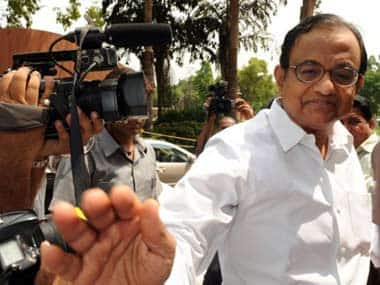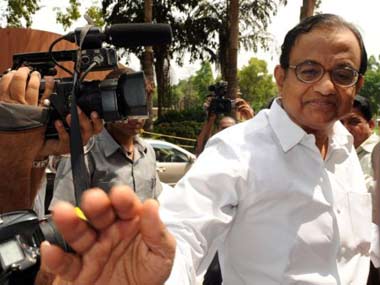The recently reborn United Progressive Alliance is asserting itself as a reform-friendly government.
Towards this end, the cabinet on Thursday took a slew of steps that seeks to instil confidence in the government and the economy.
The union cabinet approved setting up of a Cabinet Committee on Investments (CCI), urea investment policy, and the controversial Land Acquisition Bill.
[caption id=“attachment_556944” align=“alignleft” width=“380”]
 The recently reborn United Progressive Alliance is asserting itself as a reform-friendly government. AFP[/caption]
The recently reborn United Progressive Alliance is asserting itself as a reform-friendly government. AFP[/caption]
The CCI has been set up in place of the proposed National Investment Board (NIB). The committee, to be chaired by Prime Minister Manmohan Singh, would monitor and advise ministries on expediting projects with investments of Rs 1,000 crore.
The decision comes after last week’s deferment of a decision on establishing the NIB, a pet project of Finance Minister P Chidambaram.
_IANS r_eported quoting sources that the CCI will not be an appellate authority, and some doubts raised by the environment ministry on this score have been settled.
According to a report in Mint, it is not clear whether the CCI will expedite projects currently stuck on account of their inability to obtain environment clearances.
A senior government official has been quoted as saying it would not be different from the existing cabinet committees.
A final decision on imparting clearances will still lie with the nodal ministry, for example with the environment ministry in the case of an environment clearance, or the defence ministry in the case of a defence clearance, etc, the report said quoting the official.
The NIB as proposed by Finance Minister P. Chidambaram had a different role as he wanted it to be a final authority in giving clearances.
But the change has been brought about keeping in mind the objections raised by Environment Minister Jayanthi Natarajan. She had written to the Prime Minister raising questions about the constitutional validity.
Chidambaram had said on Nov 30 that views of various ministries, including the ministry of environment and forests, had been mentioned in the draft cabinet note.
“The environment ministry has raised some concerns which have been added to the cabinet note. The cabinet’s decision will be final,” he said.
The green ministry has been held responsible by the industry and many other ministries like coal and highways for delaying projects and hampering the country’s growth.
The new urea investment policy, meanwhile, is likely to incentivise fertiliser firms setting up new plants and expanding existing capacity, a PTI report said.
The policy aims to attract fresh investment of about Rs 35,000 crore to increase domestic production by 8 million tonne. This, however, is unlikely to have any impact on existing prices.
India imports over 30 percent of urea requirement and the policy is expected to reduce this.
Under the new policy, the government will give 12-20 percent post-tax return on fresh capital infused by manufacturers for setting up of new plants as well as for expansion and the revamp of the existing ones.
To ensure this return, the government would cover the entire cost of the natural gas, which is main feedstock of urea and accounts 80 percent of the cost.
The government controls the urea sector and has fixed the MRP at Rs 5,360 per tonne. The difference between the MRP and cost of production is given as subsidy to manufacturers.
For determining the cost of production of new plants to be set up after the policy comes into effect, the government has set a floor and ceiling price of urea based on the price of natural gas plus 12-20 percent equity returns.
The new investment policy was approved by the Group of Ministers (GoM) headed by the then Finance Minister Pranab Mukherjee on February 24. However, the ministry made some changes in the draft policy after inter-ministerial consultation.
It proposed covering entire cost of natural gas, while the GoM had favoured providing subsidy on gas price within the range of $6.5-14 mmBtu.
The country produces 22 million tonnes of urea, against the requirement of 32 million tonnes.
The Land Acquisition Bill that got the approval has the mandatory clause that when land is taken for private projects, the consent of 80 percent of the people is required.
In the case of public-private partnership projects, the bill makes it mandatory to obtain consent of 70 percent of the people whose land will be acquired. The bill was given the go-ahead at the Cabinet presided by Prime Minister Manmonan Singh.
The bill was finalised by Rural Development Ministry incorporating the suggestion of UPA Chairperson Sonia Gandhi who had asked the government to take consent from 80 percent land owners for purchase of land for the purpose of setting up industries and PPP projects.
Sources had said that Gandhi was not in favour of the Group of Ministers’ proposal that the consent of two-thirds of “land losers” (from whom land would be purchased) was enough for acquiring land for industries and PPP projects.
The GoM had suggested that the consent clause be kept at 67 percent for PPP projects and private projects.
The government had constituted the GoM after some ministers voiced strong reservations against certain provisions of the bill at the Cabinet meeting.
Minister of State for Rural Development Lalchand Kataria had yesterday told the Rajya Sabha that the government intends to introduce the official amendments to the Land Acquisition and Rehabilitation and Resettlement Bill, 2011 in the Lok Sabha in the winter session.
Kataria had also told the reporters that the bill has a provision for return of the unutilised land. Land Acquisition Act, 1894 had no provision for return of the unutilised land.
With inputs from PTI, IANS
)